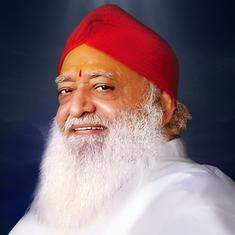Kashmir dispute: BJP’s Manohar Lal Khattar and Vikram Saini also feature in Pakistan’s letter to UN
The BJP on Wednesday lashed out at Rahul Gandhi after reports said Pakistan had cited the Congress leader’s remarks to back its arguments against India.

A letter written by Pakistan to several United Nations officials about the Kashmir matter criticised India and used statements not only by Congress leader Rahul Gandhi, but also by Haryana Chief Minister Manohar Lal Khattar.
The Bharatiya Janata Party had on Wednesday lashed out at Gandhi after reports said Pakistan’s Minister for Human Rights Shireen Mazari had cited the Congress leader’s remarks on Kashmir to back her arguments against India in her letter, written on Tuesday. The full letter, which listed alleged human rights abuses in Kashmir, was released by her ministry later.
Under a section titled “Gender-based Violence as a Weapon of War”, Mazari mentioned remarks by BJP MLA Vikram Saini, who had said earlier this month that Muslim party workers should be happy after the Centre’s decisions as they “can now marry the white-skinned women of Kashmir”.
Mazari also wrote about Khattar’s statement in which he appeared to joke about the suggestion that brides could be brought from Kashmir to improve the sex ratio of his state. She said in her letter that since August 5, there was a rise in Google search queries for “How to marry Kashmir women”.
“This misogyny, hypersexualization and objectification of women in a conflict zone is not new to the State of India: it has systematically used Gender-Based Violence as a weapon of war in the disputed region of Kashmir,” Mazari claimed.
In another section, Mazari said that acts of violence by security forces in Jammu and Kashmir had allegedly been acknowledged by mainstream politicians in India. She cited Rahul Gandhi’s remark that “people were dying” in the state and that “things are going very wrong there”.
HR Minister Dr @ShireenMazari1 wrote a detailed letter to 18 UN Special Procedures mandate-holders (Rapporteurs) on massive violations of International Human Rights Law by the Government of India in IOK#KashmirSeeksAttention @pid_gov @RadioPakistan @UNHumanRights pic.twitter.com/Qe7htLUTKF
— Ministry of Human Rights Government of Pakistan (@mohrpakistan) August 28, 2019
After reports of Mazari’s letter on Wednesday, the Congress claimed Pakistan had “mischievously dragged” Gandhi’s name to “justify the pack of lies and deliberate misinformation”. Gandhi said there was no room for Pakistan or any other foreign country to interfere in Jammu and Kashmir, and called Islamabad the “prime supporter of terrorism”.
The Indian government had imposed a security lockdown and communications blackout in Jammu and Kashmir before withdrawing its special status and splitting it into two Union Territories on August 5. The restrictions on public gatherings and movement are still in place in several parts of the state.
New Delhi’s actions were swiftly condemned by Islamabad, which downgraded diplomatic ties and ended bilateral trade. Since then, Pakistan has raised the Kashmir matter at the United Nations Security Council, and talked of raising it at the UN Human Rights Council and the International Court of Justice.
Now, follow and debate the day’s most significant stories on Scroll Exchange.









